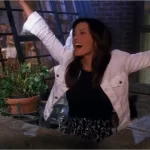- Next story Home Video Hovel- Godzilla
- Previous story Sundance 2012- Day Three
SUBSCRIBE
ADVERTISEMENTS
More
In this episode, Tyler and David discuss movies about marriage.








Tags: battleship pretensiondavid baxepisodemarriagepodcastrevolutionary roadtake sheltertyler smith
This site uses Akismet to reduce spam. Learn how your comment data is processed.
More
I haven’t listened to the whole episode yet, so I may be back to talk about the actual topic here, but I did want to say something in defense of older directors, and the kinds of films they tend to make.
In writing about Clint Eastwood’s magnificent J. EDGAR (and yes, I only brought an adjective into the mix to stir things up), Richard Brody wrote the following:
“Most directors, when they get older, get even sketchier—they’re in more of a hurry to expose their feelings and ideas and they have learned not to worry about trivia in their urgency to get to the heart of the matter. They get both quicker and more radical.”
That, I think, goes a long way to properly positioning much of the New Hollywood crowd’s work over the last decade. Their work tends to be a little more lengthy, a little less “urgent” if you like, but it also feels more personal in many respects.
David mentioned that such films tend not to have the kind of connections to the way real people live that was present in earlier work, and perhaps that’s true (though I’ve read pieces by New York parents who say CARNAGE is shockingly true to life), but I wonder ultimately if that matters all that much. I openly welcome films that blatantly ignore the realities of everyday life, all the way down to the manner in which people behave, in order to evoke something mysterious and wonderful (which, in his late 80s, is precisely what Alain Resnais achieved with WILD GRASS, which is sort of a definitive old man film).
Anyway, there is a LOT I can say about this subject, as it’s one that never ceases to fascinate me, but I’ll leave it there for now.
Source for the Brody quote is here, and is, as with all things Brody, well worth reading and considering:
http://www.newyorker.com/online/blogs/movies/2011/11/redeeming-criticism.html
That piece is fantastic even if I hesitate to agree that this is the case with “most” older directors. Even if it is, though, I stand by what I said on the podcast. But let me clarify it.
I don’t mind mundane realities being ignored. I think the problem comes with older and, perhaps more importantly, wealthier directors losing sight of the universal. If art is truth, what is the worth of art that bears no recognizable truth for almost the whole of its audience?
Perhaps in addition to formalist, structuralist and “locationist,” I should add Marxist.
– David
Oh, David, we’ve always known you were a Commie. But don’t worry, I’m not one to name names.
And I knew that’s what you were getting at on the show, but I still disagree. Not every piece of art that I’ve found effective on any level – certainly intellectual and aesthetic, but even visceral – is so because of some truth it conveys. I don’t know what the hell Stan Brakhage was getting at with anything of the work of his I’ve seen, but boy did it get to me. And if it does convey some truth, it’s a feeling, an emotion, maybe some lingering intellectual curiosity, rather than some event or circumstance I can relate to.
Same thing with J. EDGAR, honestly – I didn’t particularly “care” about the protagonist (which is of minor importance anyway), but the way in which DiCaprio performed him, and particularly the way Eastwood and Dustin Lance Black structured his story (both in screenwriting and aesthetic terms), I found monumentally affecting.
I see your point and I tend to agree with it, Scott. I also liked J. Edgar (though I wouldn’t use the word ‘monumental’ to describe anything about it). Older directors do make good, affecting films with some consistency but I still think that, in general, expecting every film from an entrenched studio director like Martin Scorsese to be another Taxi Driver or Last Temptation is a recipe for disappointment. Movies are a vulgar art form, necessarily corrupted by their commodification. The longer a filmmaker has been around, the more entwined he or she becomes in the business end of the venture. It doesn’t always lead to a compromised vision but I still hold that Tyler’s expectations of Scorsese, Spielberg, etc. are keeping him from seeing 2011 as the great year that it was.
– David
Well, what I said about adjectives goes doubly for adverbs. Or at least equally.
Just a reminder to stay on topic more. There is too much rambling and you often ramble on ramblings. I understand that it is your nature and some may find it endearing but the episodes are becoming more scattered. These tend to be on guest-less episodes. I really like the site and the show but this is becoming an issue for me. Additionally, it would be nice if there were some segments within the show.
You might like to know, i genuinely did a spit-take at your Cuba Gooding Jr line. You funny bastards.
That’s good to hear. Although I don’t remember the line you’re talking about.
“Great actor, just not great at that other thing” or something to that effect…. Might be funnier to me because Snow Dogs, Chill Factor and Daddy Day Camp were fresh in my mind.
Did you guys bring up Carnal Knowledge? Mike Nichols’ 1971 film that follows Jack Nicholson and Art Garfunkel as they go through different romantic relationships. It isn’t about marriage per se, but Nicholson’s character’s marriage to Ann-Margret takes up a big chunk of the film. Overall it’s pretty depressing, but a great look at flawed relationships and the desire for lasting passion and romance, but without the patience to stick with someone through hard times.
Not only is it the best film of the year, but TAKE SHELTER is a great portrayal of marriage “in the middle.” It’s a great look at a loving relationship not built on sex, but on history. There are the ups-and-downs, but the film shows the best of a marriage — someone who will be with you, no matter how hard things get.
Note to self: Listen to the ENTIRE episode before commenting.
Super glad Tyler brought up TAKE SHELTER — such a great film.
The best film I ever saw about Infidelity in a marriage was the Australian film Lantana, which I saw over a decade ago, and I still think it holds up today. I was 18 the first time I saw it and it was honestly the first time I thought about the emotional consequences of cheating.
A weird thought occurred to me listening to the episode. Is the film ‘Certified Copy’ in a weird way about marriage. At the heart of that film is this psychological shift in the relationship that is immediately disoriented. As a married man, I recognize that feeling a lot, where I will wake up next to my wife and for half a second I’m completely shocked by the fact that I’m married. There’s something disorienting about monogamy because every moment of cohabitation violates the sanctity of our naturally individualistic lucidity.